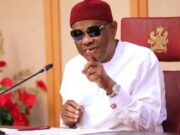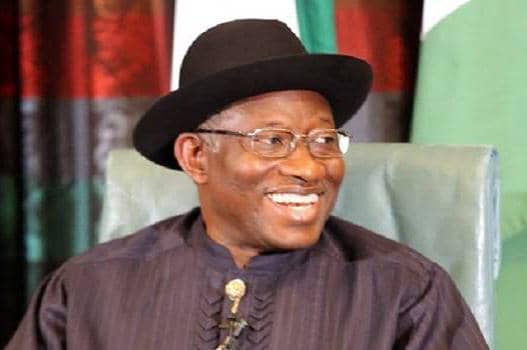Former President Goodluck Jonathan has reflected on the 2015 general elections, which he lost to ex-President Muhammadu Buhari, stating that the card reader rejected him, his wife, and his mother, nearly igniting a national crisis.
Speaking at the YIAGA Africa’s Reflection Conference on Democratic Elections in West Africa in Abuja on Tuesday, Jonathan emphasized that the success of any election depends largely on the conduct of the electoral management body and the police.
The event, themed “Strengthening Democratic Processes in West Africa: Lessons from the 2024 Elections and Prospects for Future Elections,” was supported by the European Commission, ECOWAS, and GIZ.
Jonathan stressed the importance of strong electoral institutions, stating, “Strengthen Electoral Institutions: Independent and impartial electoral commissions as well as non-partisan security operatives are the cornerstone of credible elections. We must invest in building the capacity of these institutions and safeguarding their independence from political interference.”
He further noted, “I always hold the view that the success or failure of any election lies in the hand of two critical agencies which are the electoral management body and the police. It goes without saying that the stability of a democracy is strongly tied to the way its elections are conducted and policed. If elections are not properly managed by security personnel who must be fair and just, the credibility of the electoral process and, by extension, the legitimacy of governance, could be undermined.”
Jonathan also acknowledged the growing role of youth in elections, describing their participation as one of the most crucial aspects of electoral reforms.
Reflecting on his personal experience in the 2015 election, he humorously recalled how the Independent National Electoral Commission (INEC), under the leadership of Prof. Attahiru Jega, introduced the card reader, which ended up rejecting him and his family at the polls.
“When Jega was there, he introduced the card reader, but during the election, the card reader rejected me and almost set the country ablaze. Because the card reader rejected me, rejected my wife, rejected my mother,” Jonathan said.
Despite this, he underscored the value of technological advancements in elections across West Africa, citing improvements in countries like Liberia, Senegal, and Ghana.
“It must be stated that high voter turnout in Liberia, Senegal, and Ghana, as well as the official transition of power in these countries, demonstrated public enthusiasm for democratic participation and consolidation. And I must commend the elections in Senegal. To me, it was one of the best elections I have observed in Africa and a few outside Africa,” he added.
Former INEC chairman, Prof. Jega, who delivered the keynote address, acknowledged concerns about democratic setbacks in the region but maintained that citizens still have a strong desire for accountable and representative governance.
“In spite of the worrisome evidence of backsliding of democratic progress in the West African region, there remains a substantial appetite among citizens for representative and accountable democratic government,” Jega said.
He emphasized the need for citizens, civil society organizations, and democratic actors to mobilize for credible and sustainable democratic development.
“Electing good representatives in governance and holding them to account would make government more responsible and responsive to the needs and aspirations of citizens for societal progress and socio-economic development,” he stated.
Jega acknowledged progress in strengthening independent election management bodies (EMBs) across West Africa but noted that there is still much work to be done.
Yiaga Africa’s Executive Director, Samson Itodo, highlighted that the conference provided a platform for stakeholders to reflect on electoral reforms in West Africa, focusing on both challenges and progress.
He explained, “The discussions were aimed at providing a comprehensive analysis of the 2024 elections, shedding light on key challen ges and opportunities for improvement.”

















